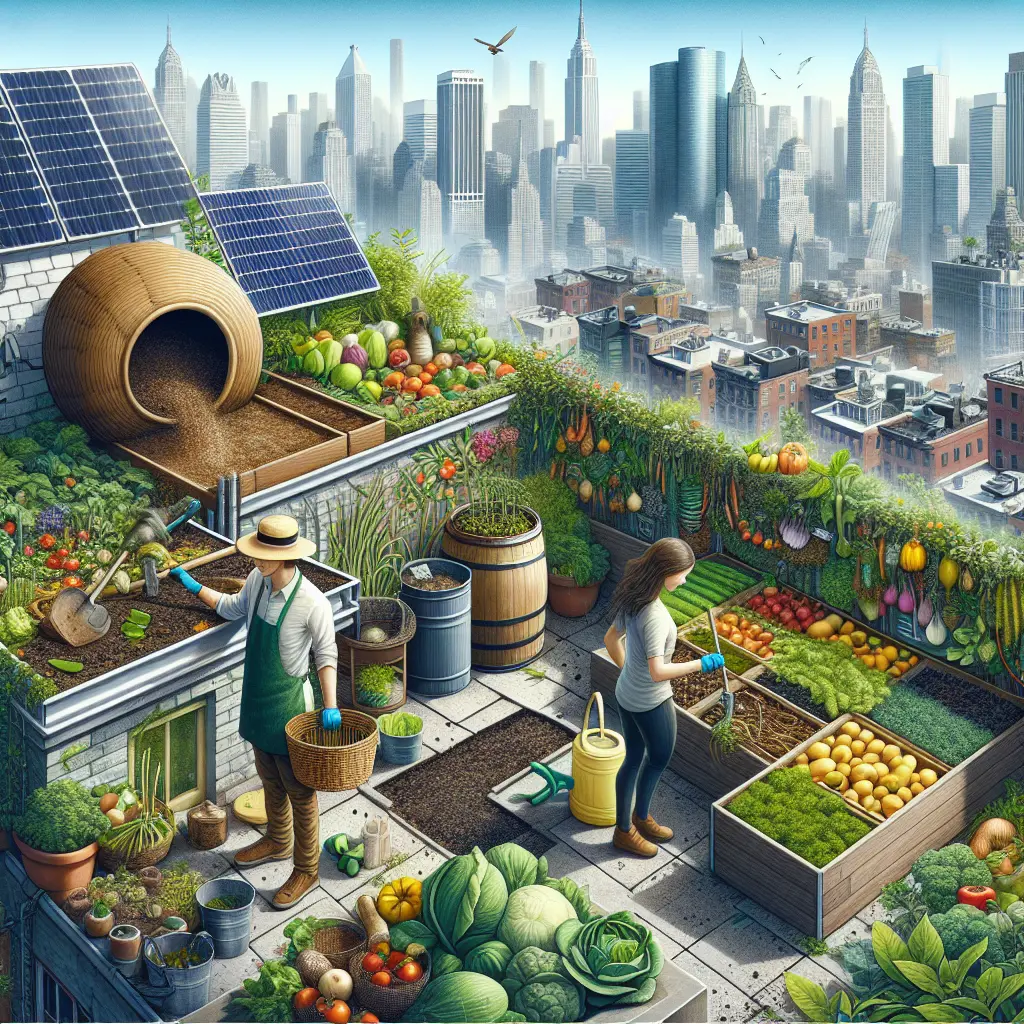
In an era where urban sprawl often displaces natural environments, the concept of sustainable gardening in urban spaces has become not just a trend, but a necessity. Urban gardening, especially in small spaces, presents a unique opportunity to contribute to environmental health, promote green living, and even enhance our own quality of life.
The Rise of Urban Gardening
Urban gardening encompasses various forms of small space gardening, including vertical gardens, rooftop gardening, and balcony gardens. These innovative solutions allow city dwellers to grow their own food, thereby reducing the carbon footprint associated with transporting food items. Vertical gardens and rooftop gardens not only optimize limited space but also contribute to building insulation, reducing the need for heating and cooling.
Sustainable Practices in Urban Gardening
Sustainability in urban gardening focuses on eco-friendly gardening practices such as using organic gardening methods and recycled gardening materials. Organic gardening avoids synthetic chemicals, promoting healthier soil and plants, and supporting urban biodiversity. Utilizing recycled materials for planters and other garden infrastructure is not only cost-effective but also reduces waste.
Composting in Urban Areas
A significant aspect of sustainable urban gardening is composting, which transforms kitchen waste into rich soil. Composting supports zero-waste gardening and enhances soil health, reducing the need for chemical fertilizers. It’s an effective practice in urban areas, where reducing waste is crucial due to limited disposal options.
Water Conservation Techniques
In urban settings, water conservation is pivotal. Techniques such as drip irrigation and the use of water-retaining soil additives can drastically reduce the amount of water needed for urban gardens. Collecting rainwater is another viable option, helping to decrease the demand on municipal water supplies.
The Role of Pollinator-Friendly Gardens
Creating pollinator-friendly gardens is essential for maintaining healthy urban ecosystems. These gardens attract bees, butterflies, and other pollinators, which are crucial for the pollination of many plants and food crops. Planting native flowers and herbs can help sustain local wildlife and enhance biodiversity in urban areas.
Urban Permaculture: A Holistic Approach
Urban permaculture involves creating sustainable and self-sufficient agricultural ecosystems in urban environments. It integrates physical structures, growing plants, and animals into a symbiotic system that mimics natural ecosystems. Urban permaculture promotes sustainability by minimizing waste, using local resources, and encouraging biodiversity.
Challenges and Innovations in Urban Food Production
Despite the benefits, urban gardening faces challenges like limited space and soil contamination. Innovations such as hydroponics and aquaponics have been developed as solutions, allowing for soil-less growing systems that can be implemented indoors or in contaminated areas.
Urban Sustainability Through Garden Design
Effective urban garden design is crucial for maximizing the productivity and sustainability of small spaces. Space-efficient gardening techniques, such as tiered planters and trellises for climbing plants, can increase yield without requiring more ground space. Thoughtful design can also integrate natural elements into urban architecture, improving air quality and providing natural cooling effects.
Recent News Impacting Urban Gardening
Recent events have underscored the importance of sustainability in urban planning and design. For instance, the Kerala CM recently highlighted the devastating impact of landslides in Wayanad and criticized the lack of precise warning systems. This disaster underscores the need for sustainable environmental practices to mitigate such risks. Source: Kerala CM Speech on Independence Day
Additionally, Shenzhen’s Futian district has been encouraging public attention to urban wildlife conservation. This initiative reflects a growing recognition of the importance of integrating natural habitats into urban environments to promote biodiversity and ecological health. Source: Shenzhen Futian Wildlife Conservation
Using Recycled Materials in Gardens
Recycled gardening materials are not just about using old containers for planting; it's also about repurposing everyday objects to reduce waste. Examples include using broken ceramics as drainage layers in pots or repurposing old furniture as plant stands. This practice supports zero-waste principles while adding unique aesthetic elements to urban garden spaces.
Conclusion
Urban gardening is not just a means of producing food; it's a vital part of creating sustainable cities. By incorporating practices like composting, water conservation, and eco-friendly gardening into urban agriculture projects, city dwellers can help alleviate some of the environmental impacts associated with dense urban areas.
As we continue to face global environmental challenges, the integration of green spaces and sustainable practices into urban planning must be prioritized to ensure resilient, healthy urban environments.
Thank you for joining me on this exploration of sustainable gardening practices in urban spaces. Embracing these practices can lead to healthier lifestyles and more vibrant cities. Let's cultivate our urban spaces with mindfulness and respect for nature!
Authored by Jenna Walsh